第51章 CHAPTER XI THE SHADOW OF WAR(5)
First that we are all Canadians, first, last and all the time.
Secondly, that we greatly respect and admire our American cousins and we desire only better mutual acquaintance for our mutual good.
Third, that we are loyal to and immensely proud of our Empire, and we mean to stick to it. And fourth, that Germany is a great country and has done great things for the world. As to the historical questions raised, these are not settled by discussion but by reliable historic documents. As to the prophecies made, we can accept or reject them as we choose. Personally I confess that I am unable to get up any real interest in this German war menace.
I believe Germany has more sense, not to say proper Christian feeling, than to plunge herself and the world into war. I move, Mr. Chairman, that we pass to the next order of business.""Hear! Hear!" cried some. "Go on with the programme.""No! No!" said others. "Let's have it out.""Mr. Chairman," said Hec Ross, rising to his feet, "this thing is better than any silly old programme, let's have it out."But the chairman, much against his inclination, for he was a fighter, ruled otherwise. "The differences that separate us from one another here to-night are not differences that can be settled by argument. They are differences that are due partly to our history and partly to the ideals which we cherish. We shall go on with the programme."At first the people were in no mood for mere amusement. They had been made to face for a brief moment the great and stern reality of war. The words and more the manner of Jack Romayne had produced a deep sense in their minds of the danger of a European conflagration, and the ominous words of the young German spoken as from intimate knowledge only served to deepen the impression made by Romayne. But the feeling was transitory, and speedily the possibility of war was dismissed as unthinkable. The bogey of a German war was familiar and therefore losing its power to disturb them. So after two or three musical numbers had been given the audience had settled back into its normal state of mind which accepted peace as the natural and permanent condition for the world.
The entertainment would have come to a perfectly proper and harmonious close had it not been for the unrestrained exuberance of Sam's humorous qualities on the one hand and the complete absence of sense of humour in Ernest Switzer on the other. The final number on the programme, which was to be a series of humorous character sketches, had been left entirely in Sam's hands and consisted of a trilogy representing the characteristics as popularly conceived of the French Canadian habitant, the humorous Irishman and the obese Teuton. Sam's early association with the vaudeville stage had given him a certain facility in the use of stage properties and theatrical paraphernalia generally, and this combined with a decided gift of mimicry enabled him to produce a really humorous if somewhat broadly burlesqued reproduction of these characters. In the presentation of his sketch Sam had reserved to the close his representation of the obese Teuton. The doings of this Teuton, while sending the audience into roars of laughter, had quite a different effect upon Switzer, who after a few moments of wrathful endurance made toward the rear of the audience.
Meantime the obese Teuton has appeared upon the stage in a famished condition demanding vociferously and plaintively from the world at large sausage. But no sausage is available. At this point a stray dog wanders upon the stage. With a cry of delight the famished Teuton seizes the unfortunate cur and joyously announcing that now sausage he will have, forthwith disappears. Immediately from the wings arise agonised canine howlings with which mingles the crashing of machinery. Gradually the howlings die into choking silence while the crash of the machinery proceeds for a few moments longer. Thereupon reappears the Teuton, ecstatic and triumphant, bearing with him a huge sausage, which he proceeds to devour with mingled lamentations over his departed "hund" and raptures over its metamorphosed condition. In the midst of this mingled lamentation and rapture is heard in the distance upon a mouth organ band the sound of the German national air. The Teuton is startled, drops his sausage upon the stage and exclaiming "Der Kronprinz," hastily beats a retreat.
At the mention of this august name Switzer disappears from the rear of the audience and makes his way to the back of the stage. In the meantime, to the accompaniment of organs and drums, appears upon the stage no less a personage than "der Kronprinz," to the reproduction of whose features Sam's peculiar facial appearance admirably lends itself. From this point the action proceeds with increased rapidity. No sooner had "der Kronprinz," who is also in a famished condition, appeared upon the stage than his eyes light upon the sausage. With a cry of delight he seizes it and proceeds ravenously to devour it. But at the first mouthful renewed howlings arise. "Der Kronprinz," in a state of intense excitement, drops his sausage and begins a wild search in the corners of the stage and in the wings for the source of the uproar. The sausage thus abandoned, aided by an invisible cord, wabbles off the stage before the eyes of the wondering and delighted audience. Thereafter "der Kronprinz" reappears with his "hund" under his arm and begins an active and distracted search for his precious sausage.
Disappointed in his search for the sausage and rendered desperate by his famished condition, he seizes the wretched cur and begins gnawing at the tail and retires from the scene, accompanied by the howls of the unhappy canine and the applauding shouts of the audience.